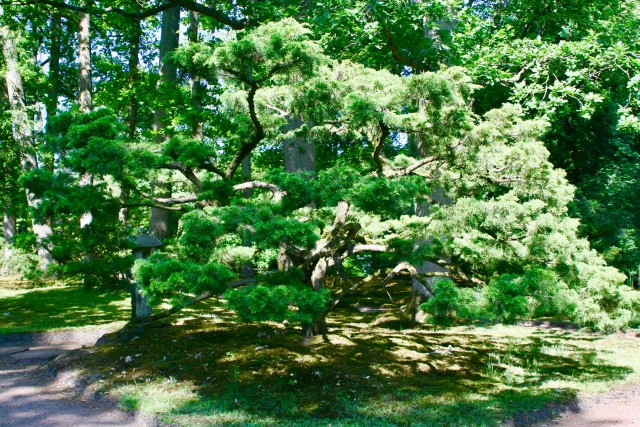# Bonsai Trees: A Sustainable and Eco-Friendly Gardening Option,
Looking for a sustainable and eco-friendly gardening option? Look no further than bonsai trees! With their compact size and minimal resource requirements, bonsai trees are perfect for the environmentally conscious gardener.
In this article, we will explore the benefits of bonsai trees for sustainable gardening, how they contribute to eco-friendly practices, and provide tips for growing and maintaining these miniature masterpieces.
Get ready to discover the world of eco-friendly bonsai techniques and learn how to incorporate these stunning trees into your sustainable garden design.
The Benefits of Bonsai Trees for Sustainable Gardening
You’ll be amazed at the benefits of bonsai trees for sustainable gardening.
Bonsai trees offer numerous advantages when it comes to creating an eco-friendly garden. Firstly, they require minimal space, making them perfect for urban environments or small gardens. With proper techniques, you can easily maintain their size, reducing the need for excessive pruning.
Bonsai trees also have a long lifespan, allowing you to enjoy their beauty for many years. Moreover, they can be grown indoors, providing a touch of nature to your living space and improving air quality.
Additionally, bonsai trees promote mindfulness and stress reduction, as they require careful attention and patience. By practicing bonsai cultivation, you not only contribute to sustainable gardening but also enhance your well-being.
How Bonsai Trees Contribute to Eco-Friendly Practices
By practicing bonsai, you can contribute to environmentally conscious habits. Bonsai trees have a minimal environmental impact compared to traditional gardening methods. They require less water and fertilizer, reducing water consumption and preventing the release of harmful chemicals into the environment.
Bonsai trees also contribute to conservation efforts by promoting the preservation of natural landscapes. By creating miniature versions of trees, gardeners can appreciate the beauty of nature without having to cut down full-sized trees. Additionally, bonsai trees can be passed down from generation to generation, allowing for the conservation of rare and endangered tree species.
Tips for Growing and Maintaining Sustainable Bonsai Trees
Growing and maintaining sustainable bonsai requires regular pruning and watering.
To keep your bonsai tree healthy and thriving, it’s important to learn proper pruning techniques. Pruning helps maintain the desired shape and size of the tree, while also promoting new growth. When pruning, make sure to use clean and sharp tools to avoid damaging the branches. Remove any dead or yellowing leaves, as well as any branches that are crossing or rubbing against each other.
Additionally, regular watering is crucial for the overall health of your bonsai tree. Water the tree thoroughly, ensuring that the water reaches the roots. Allow the soil to dry out slightly between each watering to prevent overwatering.
Eco-Friendly Bonsai Techniques: Pruning, Shaping, and Wiring
To keep your bonsai tree healthy and in shape, it’s important to regularly prune, shape, and wire it using eco-friendly techniques.
Pruning techniques involve removing dead branches, shaping the tree, and maintaining its overall health. Regularly inspect your bonsai tree for any dead or damaged branches and prune them carefully using sharp and clean tools.
Shaping your bonsai tree is essential to maintain its desired form. Trim branches and foliage, making sure to maintain a balanced and harmonious aesthetic.
Advanced wiring techniques can also be used to shape your bonsai tree. Carefully wrap copper or aluminum wire around the branches, gently bending them into the desired position. Remember to check the wiring regularly to prevent it from cutting into the bark.
Incorporating Bonsai Trees Into Your Sustainable Garden Design
When creating your sustainable garden design, consider how incorporating bonsai can enhance the overall aesthetic and bring a unique sense of tranquility to your outdoor space. Bonsai trees, with their miniature size and intricate beauty, can be a stunning addition to any garden.
To ensure the health and longevity of your bonsai, proper care is essential. Bonsai tree care involves regular watering, pruning, and fertilizing. It is also important to choose the right bonsai varieties that are suitable for your climate and gardening skills. Some popular choices include the Juniper, Pine, and Maple varieties. These trees are known for their resilience and ability to thrive in different environments.
Conclusion
In conclusion, bonsai trees are a fantastic choice for sustainable and eco-friendly gardening. They offer numerous benefits, from improving air quality to reducing water consumption.
By practicing eco-friendly techniques such as pruning, shaping, and wiring, you can ensure the health and longevity of your bonsai trees while minimizing waste.
Additionally, incorporating bonsai trees into your sustainable garden design can add beauty and tranquility to your outdoor space.
So why not give bonsai trees a try and enjoy the sustainable benefits they offer?
